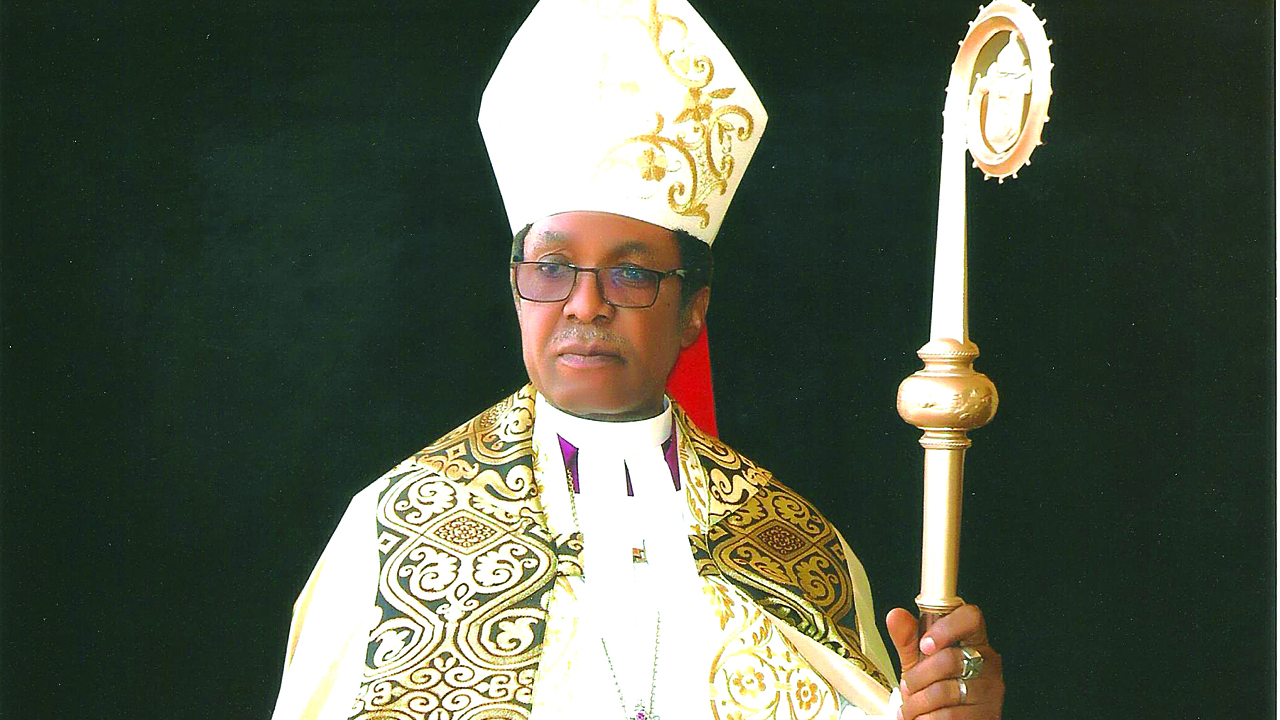In the light of the current stresses and strains within the Anglican Communion, many are trying to hold together the Biblical calls to unity and upholding truth. Here are three reasons we can deduce from Scripture to remain in fellowship with those with whom we disagree:

The Biblical stress on unity of the Church
Scripture is full of admonitions to maintain the unity of the Church. Here are two:
“As a prisoner for the Lord, then, I urge you to live a life worthy of the calling you have received…Make every effort to keep the unity of the Spirit through the bond of peace. There is one body and one Spirit—just as you were called to one hope when you were called— one Lord, one faith, one baptism; one God and Father of all, who is over all and through all and in all” (Ephesians 4:1-4).
“I pray also for those who will believe in me through their message, that all of them may be one, Father, just as you are in me and I am in you. May they also be in us so that the world may believe that you have sent me…May they be brought to complete unity to let the world know that you sent me and have loved them even as you have loved me” (John 17:20-23).
Why is unity so important? Because the church is the agent and demonstration of God’s plan to reconcile the world. We are told that reconciliation is at the heart of his will in Ephesians 1:9-10: “And he made known to us the mystery of his will according to his good pleasure, which he purposed in Christ…to bring all things in heaven and on earth together under one head, even Christ.” This is expanded in Ephesians 3:10 where the Church is to be the vehicle of that reconciliation: “His intent was that now, through the church, the manifold wisdom of God should be made known to the rulers and authorities in the heavenly realms.” God’s wisdom, his plan to unite all things in Christ, is to be seen through the Church. We are both the proclaimers of this plan and also the demonstrators of it. We invite people to be reconciled to God and to one another. People are to see that reconciliation in action in His Body, the Church. If we are not at unity with one another at least in spirit, God’s message and plan are undermined.
Jesus’ view of Good and Evil existing together in the Church
In Matthew 13 (24-30, 36-43), Jesus tells what we commonly know as “the parable of the wheat and weeds,” or, as those familiar with the King James version know it, “the parable of wheat and the tares.” “The kingdom of heaven is like a man who sowed good seed in his field. But while everyone was sleeping, his enemy came and sowed weeds among the wheat, and went away” (Matthew 13:24, 25). The story serves as both a warning and an encouragement.
The warning is that we should not be surprised to find the activity of evil in the same place where the power and plan of God are breaking into the world. There is no such thing as an “ideal world” or “ideal church” where everything works out right and just the way we or God would want.
The encouragement is that the evil will be brought to account – but only on the day of judgement: “As the weeds are pulled up and burned in the fire, so it will be at the end of the age. The Son of Man will send out his angels, and they will weed out of his kingdom everything that causes sin and all who do evil. They will throw them into the fiery furnace, where there will be weeping and gnashing of teeth” (verses 40-42). Judgement is not to be immediate, but it will be inevitable. Evil will be dealt with.
So how do we apply this in the midst of current disputes in our Communion? How do we deal with evil in the Church in the present as we await the final judgement? Are we not to exercise discipline or separate ourselves from false teachers? In the Matthew 18 passage on church discipline Jesus tells us that anyone who is unresponsive is to be treated as “a pagan or a tax collector” (Matthew 18:17). But that passage is set between the parables of the lost sheep and the unmerciful servant, both of which speak about forgiveness and restoration. Paul, in 2 Thessalonians, after telling the church not to associate with those who are disobedient, ends with “Yet do not regard them as enemies, but warn them as fellow believers” (2 Thessalonians 3:15). I believe we have to hold these two thrusts of discipline and restoration, separation and inclusion, in tension. Meanwhile, we recognize that the good exists alongside the evil – as in the world, so even in the church, as witnessed in the epistles. A mixed church should be no surprise to us.
The need for ministry to the lost/confused within the ACoC:
However, the overwhelming emphasis in the parable of the wheat and the weeds is that we must leave judgement up to God because we might get it wrong and damage the wheat in the process. God’s overriding concern is for the vulnerable believers. When the farmer’s servants come to him and ask if they can pull up the evil weeds the farmer says, “No, because while you are pulling the weeds, you may root up the wheat with them. Let both grow together until the harvest” (verse 29). Just as the landowner is so wary of uprooting the wheat with the weeds, God is so wary of rooting out his followers with the people of the evil one that he will allow the evil to exist alongside the good. Though it may cause problems and pain for his children, he will not remove the evil until the end in order to protect the fragile wheat. This shows just how precious even the weakest and most demoralized member of the kingdom is in God’s sight. Not one of those whom God has chosen is to be lost. The cost of this is suffering the continuing presence of evil for the present while.
How do we express this same concern in the present times? The final verse gives us a clue.[1] It tells us that after the judgement, “Then the righteous will shine like the sun in the kingdom of their Father” (verse 43). These words echo the passage in Daniel 12 which promises that in the Resurrection “Those who are wise shall shine like the brightness of the heavens and those who lead many to righteousness, like the stars for ever and ever” (Daniel 12:3). Earlier in Daniel we read that “Those who are wise will instruct many, though for a time they will fall by the sword or be burned or captured or plundered” (Daniel 11:33). The role of the “wise” or “righteous” is to enable others to understand by instruction and example and be turned to righteousness. Jesus ends the parable with “Those who have ears, let them hear” (verse 43) – Jesus is calling on people to understand. Our role in the present is to be like that of Jesus – to minister to the vulnerable: to speak clarity to the confused, to instruct in righteousness those in danger of straying, to declare warning to those who are in error. This is what I see as the task of the Anglican Communion Alliance – to lead the vulnerable into understanding. The vast majority of people in our church is unaware of the issues at stake and we have a responsibility to them. Whatever decision is made about ecclesiastical alignment, there must be no wavering on our primary calling to protect the vulnerable by careful instruction and teaching – they must not be allowed to be “uprooted” in our desire to eliminate evil in the church. Do we consider the young person discovering they have same-sex attraction and hearing no voices in the church other than those advocating they act upon their desires? Do we also realize we have a ministry to call those in error to repentance – like Elijah we may feel it is best done “outside” the structures but then again, you might be heard better if you were within.
Conclusion
It is often uncomfortable to be in fellowship with those with whom we disagree. We can feel isolated and at times scorned as “out of step.” It is so much easier to fellowship with those of “like mind.” But, as a conservative, I have always felt that I have needed the liberal side of the church. From my perspective, liberals are good at asking questions – conservatives are not. In that sense, Jesus was a true liberal in relationship to the religious establishment of his time. However, Jesus was deeply rooted in the Scriptures and was able to give answers. In my opinion, that is why the liberal needs the conservative – to give answers from a Biblical perspective. We need one another; we need to stay in fellowship.
The Rev. Dr. Brett Cane is a retired Anglican priest, formerly under the Anglican Church of Canada, but now serving as a priest in the diocese of Egypt, in the region of the Horn of Africa, where he ministers and teaches each summer. Through the gracious cooperation of bishops of various jurisdictions, he holds licenses to officiate in both the Anglican Church of Canada and the Anglican Network in Canada. He is also a past Chair of the Anglican Communion Alliance.
[1] With thanks for the inspiration for these ideas to David Hill, The Gospel of Matthew. (London: Oliphant’s, 1978), pg.237.




